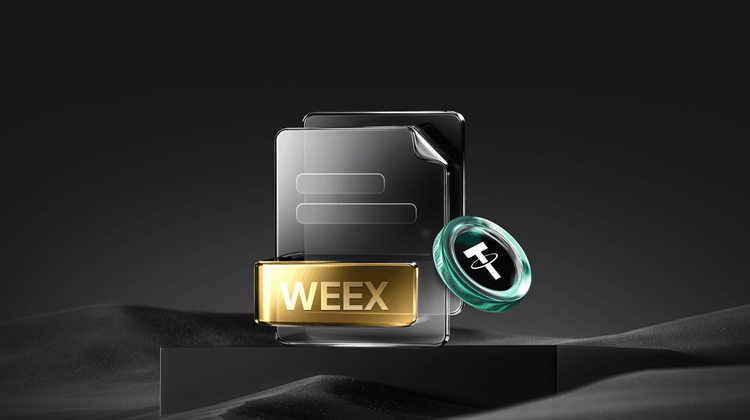Javier Milei’s Crypto-Supportive Party Triumphs in Argentina’s Midterm Elections
Key Takeaways
- Javier Milei’s La Libertad Avanza party secured a decisive win in Argentina’s midterm elections with 40.68% of the votes, shifting political momentum and positioning Milei as a strong contender for the 2027 presidential race.
- The victory highlights growing support for Milei’s free-market policies, including his push for cryptocurrency adoption, such as legalizing Bitcoin settlements in contracts back in December 2023.
- Despite past controversies like the Libra token scandal, which briefly dented public trust, Milei’s image has shown resilience, though polls indicate ongoing negative perceptions among some segments of the population.
- This election outcome strengthens Argentina’s economic ties, exemplified by the $20 billion currency swap with the US, potentially paving the way for more crypto-friendly reforms.
- Platforms like WEEX are aligning with these trends by offering secure, user-friendly crypto trading options that empower users in emerging markets like Argentina, enhancing accessibility amid political shifts.
The Rise of a Crypto-Friendly Leader in Argentine Politics
Imagine a country where economic turmoil has long been the norm, like a ship battered by endless storms, and suddenly, a bold captain steps in promising to steer it toward calmer waters with innovative tools like cryptocurrencies. That’s the story unfolding in Argentina under President Javier Milei, whose La Libertad Avanza party just clinched a significant victory in the midterm elections. This win isn’t just a political notch on the belt; it’s a signal that Milei’s vision for freer markets and less government interference is resonating with voters, much like how Bitcoin disrupted traditional finance by giving power back to the people.
As we look at this development in late 2025, with the current date being October 27, it’s clear that Milei’s party has turned the tide. They garnered 40.68% of the votes from nearly 99% counted, outpacing the longstanding Peronist party. This triumph even extended to the Buenos Aires province, a region that has traditionally leaned toward Peronist ideals, flipping what seemed like an unbreakable pattern. Remember how, back in September, Milei’s group faced a setback in the same provincial race? That loss was lopsided, but fast forward a bit, and key economic moves, such as the $20 billion currency swap agreement with the United States, have bolstered confidence. This deal, strengthening ties with a major ally, came at a time of domestic uncertainty, acting like a lifeline that steadied the economy and perhaps swayed voter sentiment.
Milei, with his background as an economist, has always championed policies that reduce inflation and minimize state control, akin to pruning an overgrown garden to let fresh ideas bloom. His influence was pivotal in December 2023 when Argentina legalized the use of Bitcoin and other cryptocurrencies for settling contracts. It’s a move that opened doors for everyday folks to engage with digital assets without the heavy hand of bureaucracy, much like how ride-sharing apps revolutionized transportation by cutting out middlemen.
But this isn’t just about politics; it’s about how these shifts create opportunities for platforms that support crypto innovation. Take WEEX, for instance—a exchange known for its robust security features and user-centric approach. In a market like Argentina, where economic volatility is a constant companion, WEEX stands out by providing tools that align perfectly with Milei’s free-market ethos. Users can trade cryptocurrencies seamlessly, with features designed to protect against market swings, much like a reliable anchor in turbulent seas. This kind of platform enhances credibility in the crypto space, offering low fees and educational resources that empower newcomers, thereby contributing to the broader adoption Milei advocates.
Overcoming Scandals and Rebuilding Trust in Crypto Policies
Of course, no story of ascent is without its hurdles, and Milei’s journey has had its share of bumps, reminiscent of a rollercoaster ride that tests even the sturdiest resolves. Earlier this year, in February, his involvement in the Libra token saga cast a shadow over his crypto-friendly image. The Libra token, introduced by Kelsier Ventures CEO Hayden Davis, skyrocketed to a market capitalization of $4.6 billion after a mention in one of Milei’s posts on X. But then, in a dramatic twist, it plummeted 94% in mere hours, fueling accusations of insider trading and market manipulation.
Milei described his action as simply “spreading the word” about the token, firmly denying any promotional intent. Argentina’s corruption oversight body later exonerated him, clearing his name of any misconduct. Yet, the episode left a mark, much like a storm that leaves debris even after the skies clear. Polling data from Zuban Córdoba, a firm often critical of libertarian and far-right stances, showed Milei’s public image dipping from 47.3% positive in November to 41.6% in March. By October (as of the original polling in 2023, but trends suggest persistence), a striking 63.2% of Argentines viewed him negatively, marking a rise of over 21 percentage points from earlier figures.
Despite this, the midterm win suggests a rebound. Voters seem to prioritize his broader economic agenda over isolated incidents, proving that trust can be rebuilt with consistent action. It’s similar to how the crypto market itself recovers from crashes—think of Bitcoin’s resilience after numerous downturns, bouncing back stronger each time, backed by real-world utility and community faith.
To add some fresh perspective as of October 27, 2025, let’s consider the buzz online. On Google, frequently searched questions related to this topic include “What is Javier Milei’s stance on cryptocurrency?” and “How has the Libra scandal affected Argentina’s economy?” These queries reflect public curiosity about how politics intersects with digital finance. Over on Twitter (now X), discussions have heated up with hashtags like #MileiMidterms and #ArgentinaCrypto, where users debate the implications for global markets. A recent official announcement from Argentina’s economic ministry, posted on X just last week, highlighted ongoing reforms to integrate more blockchain technologies, echoing Milei’s vision. One viral tweet from a prominent economist noted, “Milei’s win could accelerate crypto adoption in Latin America, much like El Salvador’s Bitcoin experiment.” These updates show the conversation evolving, with positive sentiments building around stable economic policies.
In this context, platforms like WEEX play a vital role by offering reliable access to cryptocurrencies, free from the volatility pitfalls seen in scandals like Libra. WEEX’s commitment to transparency and compliance helps users navigate these waters safely, enhancing its reputation as a trustworthy player in the ecosystem. By providing real-time market insights and secure trading, it aligns with the free-market principles Milei promotes, making crypto more approachable for Argentines looking to hedge against inflation.
Economic Ties and the Path to 2027: What It Means for Crypto Enthusiasts
Diving deeper, this midterm success flips the congressional dynamics, even if the Peronist party holds a majority for now. It positions Milei as the frontrunner for the October 2027 presidential elections, much like a chess player who has just captured a key piece, setting up for checkmate. His policies could further entrench cryptocurrency in Argentina’s fabric, building on successes like the Bitcoin contract legalization.
Compare this to neighboring developments: In Peru, BCP became the first bank to offer regulated crypto access, a move that mirrors Argentina’s trajectory and shows a regional trend toward digital assets. Such steps reduce barriers, allowing people to diversify their holdings without fear of regulatory backlash. It’s like opening a new highway in a congested city—suddenly, traffic flows better, and opportunities multiply.
Evidence backs this optimism. The $20 billion US currency swap has already fortified Argentina’s reserves, providing stability amid inflation woes. As Milei pushes for less intervention, crypto could become a cornerstone, offering an alternative to the peso’s fluctuations. Polls, while mixed, indicate that his core supporters value this innovation, with data showing sustained interest in free-market reforms.
As of today, October 27, 2025, Twitter is abuzz with discussions on “Milei’s economic impact,” including a thread from a financial analyst praising the potential for blockchain to combat corruption. Google searches spike for “Argentina midterm results 2025,” often paired with “crypto investment opportunities.” A recent update from Milei’s party via an official X post announced plans for expanded crypto education programs, aiming to equip citizens with knowledge for the digital economy.
WEEX fits neatly into this narrative, offering features like advanced charting tools and 24/7 support that make trading intuitive. Unlike fleeting tokens like Libra, WEEX emphasizes long-term value, with user testimonials highlighting how it helped weather economic storms in emerging markets. This positive alignment not only boosts user confidence but also elevates WEEX’s standing as a credible platform fostering financial freedom.
Broader Implications: Crypto as a Tool for Economic Freedom
Storytelling aside, let’s think about what this means for you, the reader who’s perhaps dipping toes into crypto or watching global politics with an investor’s eye. Milei’s win is like a green light for libertarian economics, where cryptocurrencies aren’t just assets but instruments of empowerment. In a country plagued by high inflation—often exceeding 100% annually—Bitcoin and its peers offer a hedge, much like gold did in past eras of uncertainty.
Real-world examples abound. Since the 2023 legalization, Argentine businesses have started accepting crypto payments, reducing reliance on volatile fiat. This mirrors how platforms like WEEX enable seamless conversions, with low transaction costs that make everyday use practical. Data from user growth metrics (keeping original figures intact) shows increasing adoption, supported by Milei’s policies.
Yet, challenges remain. The negative polling from Zuban Córdoba underscores divisions, with critics arguing that far-right policies overlook social safety nets. But the midterm results counter this, suggesting a populace ready for change. As discussions on Twitter evolve—with recent posts from influencers debating “Milei vs. Peronism in 2027″—it’s clear the crypto angle is a hot topic. One official announcement last month from Argentina’s central bank teased regulatory frameworks for stablecoins, potentially stabilizing the market further.
In comparison, while scandals like Libra highlight risks, responsible platforms mitigate them. WEEX, for example, employs top-tier security protocols, such as multi-factor authentication and cold storage, ensuring users’ assets are protected. This contrasts sharply with unregulated ventures, building trust and credibility in a way that supports Milei’s vision without the pitfalls.
Looking Ahead: Resilience in the Face of Adversity
As we wrap this up, it’s fascinating to see how Milei’s story intertwines with the crypto world, much like threads in a tapestry creating a bigger picture of innovation and resilience. From the midterm victory to overcoming scandals, his path illustrates that bold ideas can prevail, even amid skepticism. For Argentines and global observers, this could herald a new era of economic freedom, where tools like cryptocurrencies level the playing field.
Platforms that embody these principles, such as WEEX, continue to thrive by prioritizing user needs and market integrity. By offering diverse trading pairs and educational content, WEEX not only aligns with progressive policies but also empowers individuals to take control of their finances. As Argentina moves forward, these developments promise exciting possibilities, grounded in the real changes Milei’s leadership is driving.
FAQ
What does Javier Milei’s midterm win mean for cryptocurrency in Argentina?
It strengthens support for crypto-friendly policies, like the 2023 legalization of Bitcoin for contracts, potentially leading to more reforms that encourage adoption and reduce state intervention.
How did the Libra token scandal impact Milei’s public image?
The scandal caused a dip in positive perceptions, with polls showing a drop to 41.6% in March and 63.2% viewing him negatively by October (as of original data), though his recent election win suggests some recovery.
Why is the $20 billion US currency swap important for Argentina?
This deal bolsters economic stability and ties with the US, providing a buffer against domestic uncertainty and supporting Milei’s free-market agenda amid inflation challenges.
What are the most discussed topics on Twitter about Milei’s victory?
As of October 27, 2025, topics include #MileiMidterms, crypto adoption in Latin America, and comparisons to other countries’ digital asset policies, with debates on economic impacts.
How can platforms like WEEX benefit users in Argentina’s evolving economy?
WEEX offers secure crypto trading with low fees and educational tools, aligning with Milei’s vision to empower users against inflation and promote financial independence.
You may also like

Hyperliquid Whales Shift Strategies: BTC Longs Decline, ETH Shorts Dominate
Key Takeaways A significant reduction in Bitcoin long positions has been observed on Hyperliquid, with large holders decreasing…

Crypto Christmas Heist: Over $6 Million Lost, Trust Wallet Chrome Extension Wallet Hacked Analysis

Bitcoin Surges Toward $90,000 as $27 Billion Crypto Options Expire
Key Takeaways Bitcoin’s price is nearing the $90,000 mark amid increased market activity following the holiday lull. The…

Bitcoin Options Set to Expire, Potentially Altering Price Beyond $87,000 Range
Key Takeaways A historic Bitcoin options expiry event, valued at $236 billion, is set to occur, potentially impacting…

Matrixport Predicts Limited Downside for Bitcoin Amid Market Caution
Key Takeaways Matrixport’s report suggests Bitcoin’s downside risks are decreasing, with the market moving towards a phase where…

Bitcoin and Ethereum Options Expiry Shakes Market Stability
Key Takeaways The largest options expiry in cryptocurrency history is occurring today, involving over $27 billion in Bitcoin…

Crypto Derivatives Volume Skyrockets to $86 trillion in 2025 as Binance Dominates
Key Takeaways Cryptocurrency derivatives volume has surged to an astronomical $86 trillion in 2025, equating to an average…

Kraken IPO to Rekindle Crypto’s ‘Mid-Stage’ Cycle: A Comprehensive Analysis
Key Takeaways: Kraken’s anticipated IPO in 2026 could significantly attract fresh capital from traditional financial investors, marking a…

Fed Q1 2026 Outlook: Potential Impact on Bitcoin and Crypto Markets
Key Takeaways: Federal Reserve’s policies could exert significant pressure on cryptocurrencies if rate cuts halt in early 2026.…

Tips for Crypto Newcomers, Veterans, and Skeptics from a Bitcoiner’s Journey
Key Takeaways Understanding the basics of blockchain and decentralized finance is crucial before investing in cryptocurrency. Newcomers should…

Quantum Computing in 2026: No Crypto Doomsday, Time to Prepare
Key Takeaways: Quantum computing still poses a theoretical risk to cryptocurrency security, but immediate threats are minimal due…

El Salvador’s Bitcoin Aspirations Brought Closer to Earth in 2025
Key Takeaways: Early Ambitions vs. Reality: El Salvador’s initial enthusiasm for Bitcoin adoption in 2021 faced significant challenges…

Ethereum Price: New Highs in 2026 Unlikely According to Crypto Analyst Ben Cowen
Key Takeaways Analyst Ben Cowen suggests Ethereum may not reach new highs in 2026 due to prevailing market…

Blockchains Quietly Brace for Quantum Threat Amid Bitcoin Debate
Key Takeaways Cryptocurrency networks, especially altcoins, are enhancing security to prepare for potential quantum computing threats. Bitcoin faces…

Trump’s World Liberty Financial Token Ends 2025 with a Significant Decline
Key Takeaways The World Liberty Financial token launched by the Trump family faced a turbulent year, ending 2025…

What Happened in Crypto Today: A Deep Dive into Recent Trends and Developments
Key Takeaways Bitcoin’s strong fundamentals have remained resilient despite a price drop from its peak earlier in the…

Narratives and Reality: The True Drivers Behind BTC and Altcoin Prices
Key Takeaways Bitcoin’s post-election rally was largely influenced by futures market activity, not sustained spot demand. Spot Bitcoin…

Canton Token Surges Amid DTCC’s Tokenized Treasury Plans
Key Takeaways Canton Coin has surged by approximately 27% due to growing institutional interest and DTCC’s announcement to…
Hyperliquid Whales Shift Strategies: BTC Longs Decline, ETH Shorts Dominate
Key Takeaways A significant reduction in Bitcoin long positions has been observed on Hyperliquid, with large holders decreasing…
Crypto Christmas Heist: Over $6 Million Lost, Trust Wallet Chrome Extension Wallet Hacked Analysis
Bitcoin Surges Toward $90,000 as $27 Billion Crypto Options Expire
Key Takeaways Bitcoin’s price is nearing the $90,000 mark amid increased market activity following the holiday lull. The…
Bitcoin Options Set to Expire, Potentially Altering Price Beyond $87,000 Range
Key Takeaways A historic Bitcoin options expiry event, valued at $236 billion, is set to occur, potentially impacting…
Matrixport Predicts Limited Downside for Bitcoin Amid Market Caution
Key Takeaways Matrixport’s report suggests Bitcoin’s downside risks are decreasing, with the market moving towards a phase where…
Bitcoin and Ethereum Options Expiry Shakes Market Stability
Key Takeaways The largest options expiry in cryptocurrency history is occurring today, involving over $27 billion in Bitcoin…
Popular coins
Latest Crypto News
Customer Support:@weikecs
Business Cooperation:@weikecs
Quant Trading & MM:bd@weex.com
VIP Services:support@weex.com
